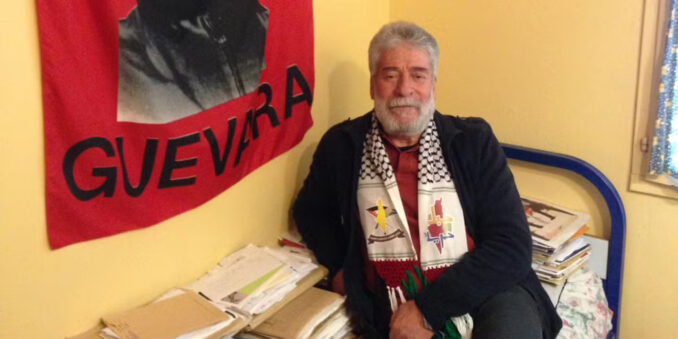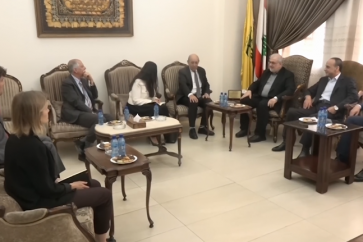The French Ministry of Justice announced on Thursday the release of Lebanese activist Georges Ibrahim Abdallah, after 41 years of detention in French prisons.
Abdallah, a prominent figure in leftist resistance and a fervent advocate for the Palestinian cause, has faced numerous delays in his legal proceedings, largely attributed to political interference, particularly from the United States, according to his lawyer. “The United States exerted pressure to obstruct the legal process leading to his release,” he stated, emphasizing that the case has been more political than judicial.
Expressing congratulations to Abdallah’s family, his lawyer noted, “I salute the family of this Lebanese fighter and send them my congratulations on his regaining of freedom.” Abdallah has firmly rejected any compensation as a condition for his release, standing by his principles against what he perceives as politically motivated demands.
The Lebanese embassy in Paris is set to manage the formalities for Abdallah’s transfer to the airport as he prepares to return to Beirut. His brother, Robert Abdallah, reiterated that the delay in Georges’ release was due to intense political pressure, particularly from the US on France.
At 74, Abdallah has long been eligible for release under French law. Despite a November ruling that deemed him no longer a serious threat, his freedom was stalled by an appeal from France’s national anti-terrorism prosecutor, prolonging what many supporters view as a long-overdue act of justice.
Abdallah’s case remains one of the most politically charged detention cases in modern French history. Arrested in 1984 and sentenced to life in 1987, he has been eligible for parole since 1999. His repeated applications have faced rejection, with the exception of a conditional release in 2013 that was ultimately blocked by the then-Interior Minister.
As one of Europe’s longest-held prisoners, Abdallah’s legacy as a former member of the Popular Front for the Liberation of Palestine (PFLP) and founder of the Marxist-Leninist Lebanese Armed Revolutionary Factions (LARF) has drawn international attention. Accused of participating in high-profile assassinations in the 1980s, Abdallah has consistently maintained that he is a “fighter” for Palestinian rights, not a criminal.
In 1999, Abdullah met the conditions for his release, as stipulated by the French Penal Code. In 2003, a parole court ordered his release. The French Public Prosecutor appealed the decision, delaying his release from prison. In 2005, the French Public Prosecutor opposed any decision to release him. In 2006, the French Public Prosecutor rejected Abdullah’s request for release, arguing that France’s image would be tarnished in the eyes of the United States and its allies, and that his deportation to Lebanon did not guarantee that he would not repeat the actions he had committed. In 2007, Abdallah’s lawyer submitted his seventh parole request, which was rejected on October 10 of the same year. In 2007, Abdallah appealed the ruling, and the appeal hearing was held on January 31, when the verdict was postponed until April 17, 2008.
In 2013, the Paris Penal Enforcement Chamber approved his eighth release request, linking it to his departure from French territory. The Public Prosecution appealed, and the verdict was suspended. The French Enforcement Court also rejected Abdallah’s ninth parole request in 2014.
The court had postponed Abdallah’s release decision after a hearing held on February 20, considering that he was required to pay part of the compensation to the families of the assassinated American and Israeli diplomats, as a preliminary step to accepting his release request. Abdallah has repeatedly rejected this request, denying the charge of complicity in the assassination.
It’s worth noting that the French Enforcement Court ordered Abdullah’s release in a hearing held last November, but immediately suspended the execution following an appeal from the French Anti-Terrorism Public Prosecutor’s Office.
Source: Agencies (edited and translated by Al-Manar English Website)




